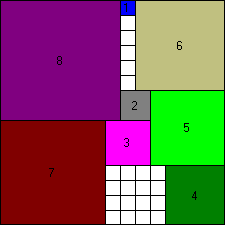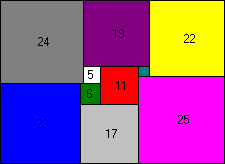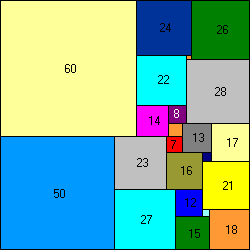I would easily think: 'Puzzles with square pieces must be dead simple, you're quickly bored'.
You can rotate a square, but it will remain the same square.
Suppose you have a rectangular room and all different square tiles for the floor...
How can you tile your floor without using the saw?
It turned out to be a bit less easy than expected!
You can easily conclude: this is an infinit number of jigsaw puzzles
and you can find out that each is really different!
The larger the puzzle surfice, the more possibilities and tougher the puzzle.
 15x15 puzzle
15x15 puzzle
 65x47 puzzle
65x47 puzzle
Searching for rectangles which can be filled perfectly with different squares.
There is a surprising connection to the Fibonacci numbers!

Perfect squares are of course the ultimate challenge. How to fill a square with different square pieces?